Plotting Individual Orientations
Basics of the plot types for individual orientations data
This section gives an overview over the possibilities that MTEX offers to visualize orientation data.
| On this page ... |
| Scatter Pole Figure Plot |
| Scatter (Inverse) Pole Figure Plot |
| Scatter Plot in ODF Sections |
| Scatter Plot in Axis Angle or Rodrigues Space |
| Orientation plots for EBSD and grains |
Let us first import some EBSD data with a script file
mtexdata forsteriteand select all individual orientations of the Iron phase
ebsd('Fo').orientationsans = orientation size: 152345 x 1 crystal symmetry : Forsterite (mmm) specimen symmetry: 1
Scatter Pole Figure Plot
A pole figure showing scattered points of these data figure can be produced by the command plotPDF.
plotPDF(ebsd('Fo').orientations,Miller(1,0,0,ebsd('Fo').CS))
I'm plotting 1250 random orientations out of 152345 given orientations You can specify the the number points by the option "points". The option "all" ensures that all data are plotted
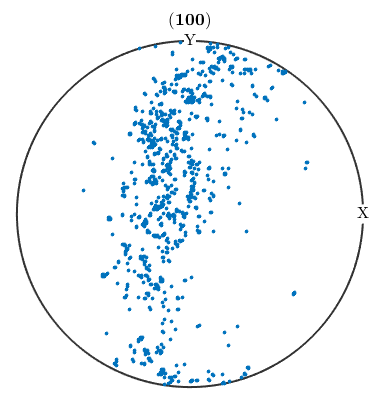
Scatter (Inverse) Pole Figure Plot
Accordingly, scatter points in inverse pole figures are produced by the command plotIPDF.
plotIPDF(ebsd('Fo').orientations,xvector)I'm plotting 12500 random orientations out of 152345 given orientations
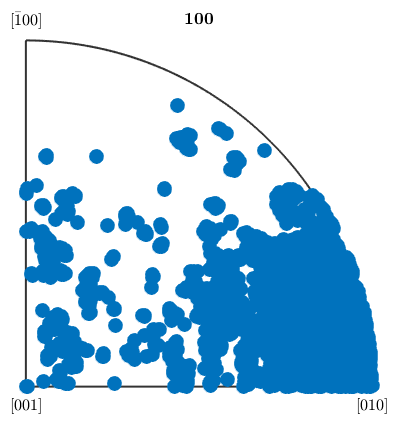
Scatter Plot in ODF Sections
The plotting of scatter points in sections of the orientation space is carried out by the command plotSection. In the above examples, the number of plotted orientations was chosen automatically such that the plots not to become too crowded with points. The number of randomly chosen orientations can be specified by the option points.
plotSection(ebsd('Fo').orientations,'points',1000,'sigma','sections',9)
plotting 1000 random orientations out of 152345 given orientations
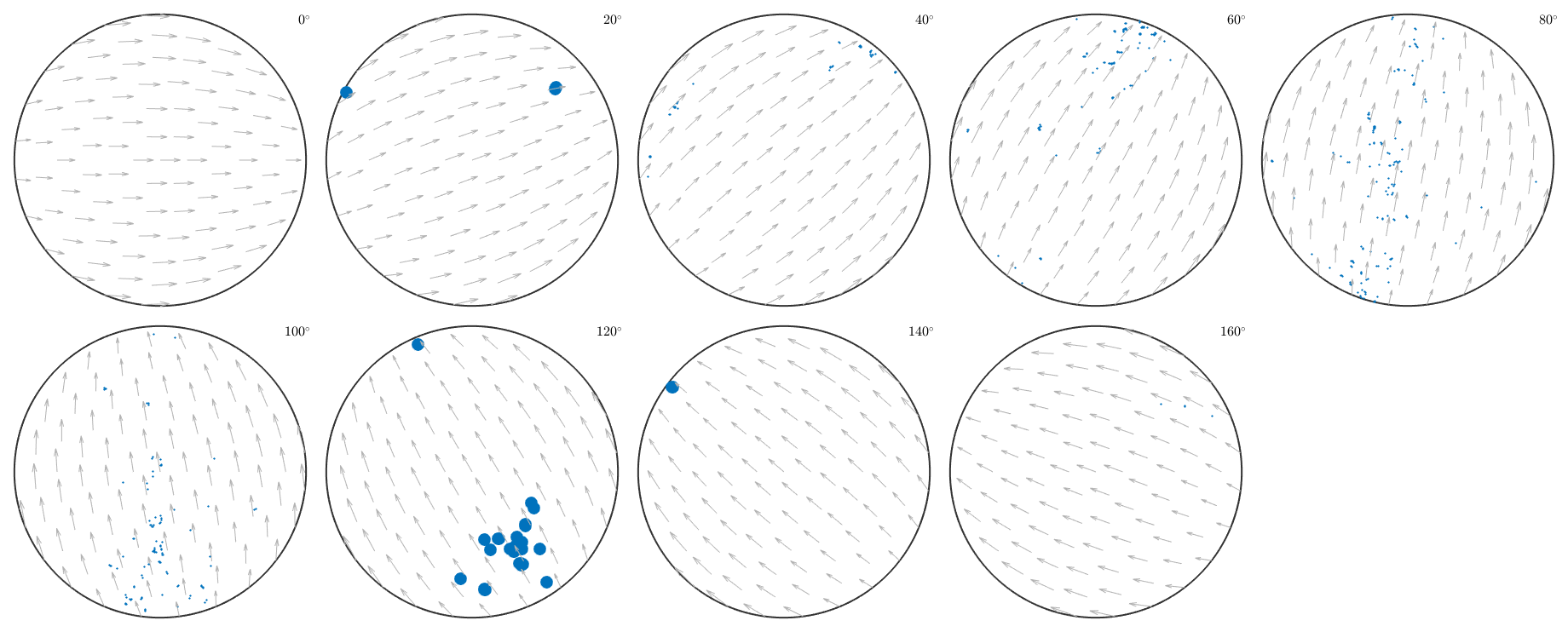
Scatter Plot in Axis Angle or Rodrigues Space
Another possibility is to plot the single orientations directly into the orientation space, i.e., either in axis/angle parameterization or in Rodrigues parameterization.
scatter(ebsd('Fo').orientations)plot 2000 random orientations out of 152345 given orientations
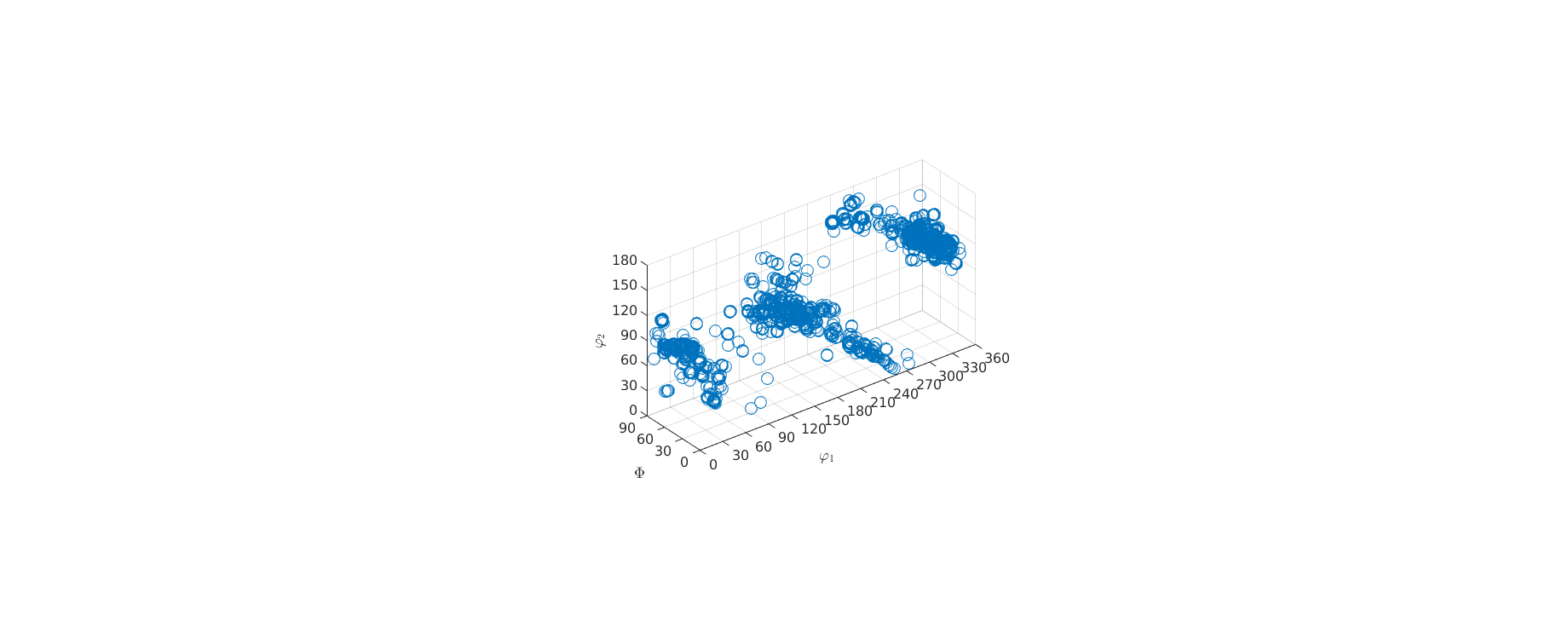
Here, the optional option 'center' specifies the center of the unique region in the orientation space.
Orientation plots for EBSD and grains
Since EBSD and grain data involves single orientations, the above plotting commands are also applicable for those objects.
Let us consider some grains detected from the EBSD data
grains = calcGrains(ebsd);
Then the scatter plot of the individual orientations of the Iron phase in the inverse pole figure is achieved by
plotIPDF(ebsd('Fo').orientations,xvector,'points',1000, 'MarkerSize',3);
I'm plotting 1000 random orientations out of 152345 given orientations
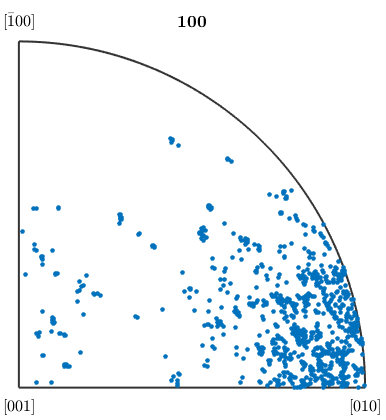
In the same way, the mean orientations of grains can be visualized
hold all plotIPDF(grains('Fo').meanOrientation,xvector,'points',500, 'MarkerSize',3); hold off
I'm plotting 500 random orientations out of 4092 given orientations
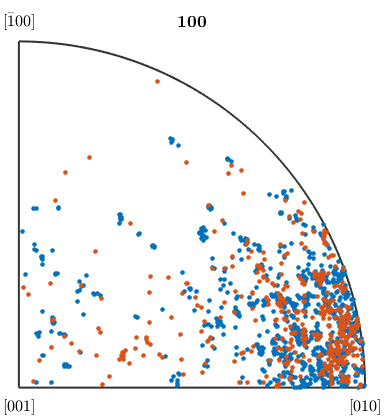
One can also use different colors on the scatter points
h = [Miller(1,0,0,ebsd('Fo').CS),Miller(1,1,0,ebsd('Fo').CS)]; plotPDF(ebsd('Fo').orientations,ebsd('Fo').mad,h,'antipodal','MarkerSize',4)
I'm plotting 1250 random orientations out of 152345 given orientations You can specify the the number points by the option "points". The option "all" ensures that all data are plotted
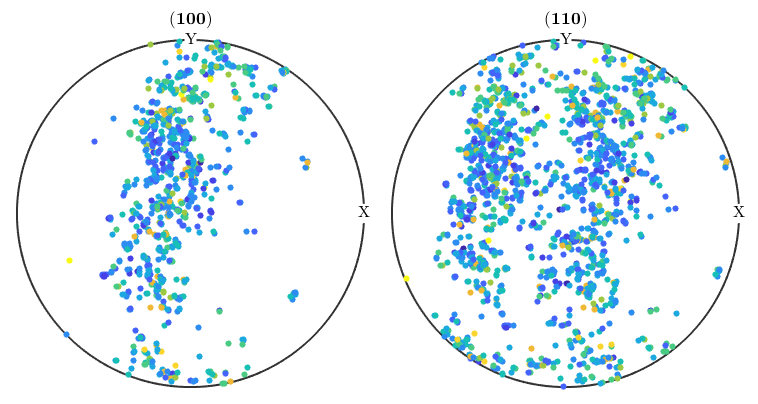
or some arbitrary data vector
plotSection(grains('Fo').meanOrientation,grains('Fo').area,... 'sigma','sections',9,'MarkerSize',4);
plotting 2000 random orientations out of 4092 given orientations
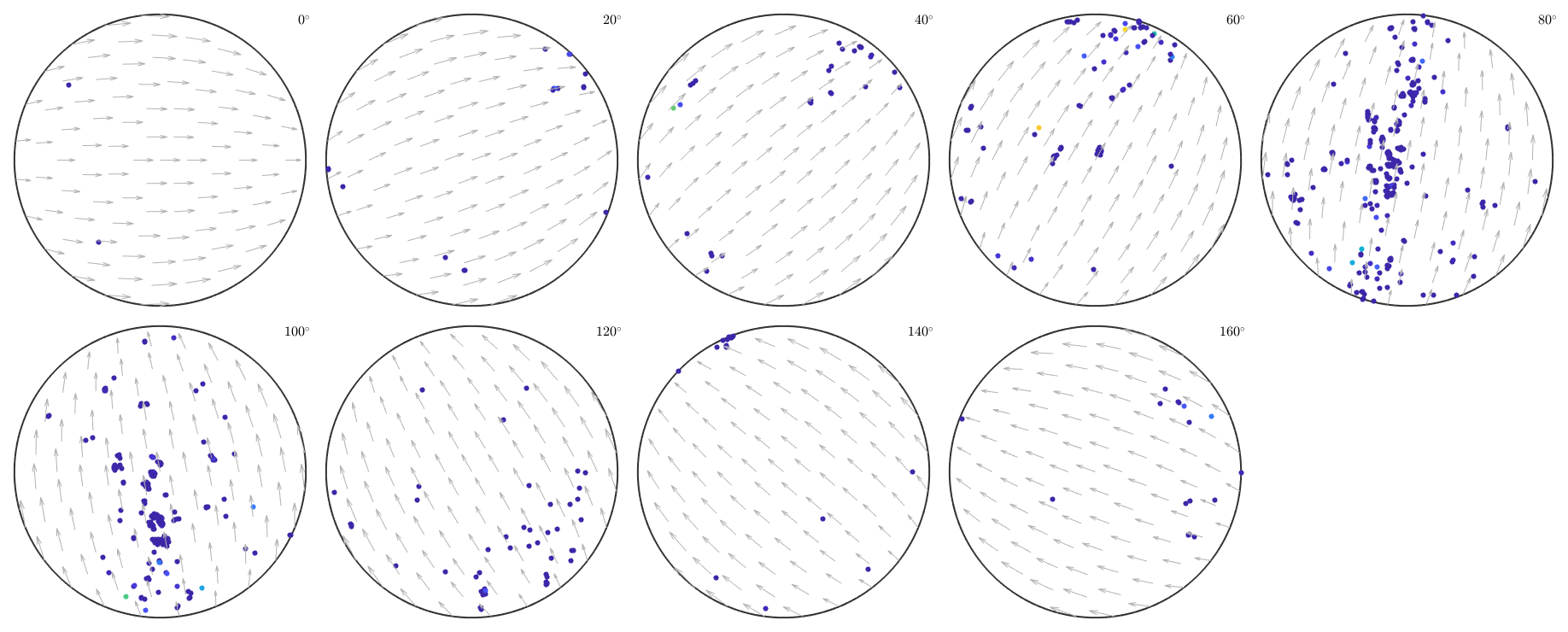
See also Scatter plots for more information about scatter plot and projections for more information on spherical projections.
| DocHelp 0.1 beta |